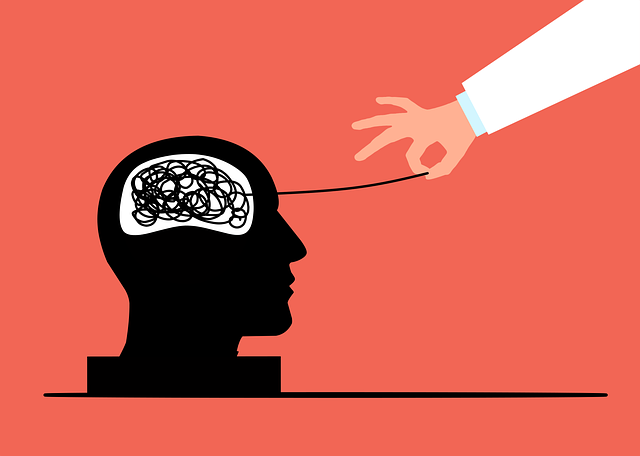Therapy & Open Dialogue: Reducing Substance Abuse Risks in Elderly Couples
Identifying risk factors for substance abuse in elders is key to prevention. Tailored therapy addres…….
In many societies, aging is accompanied by a unique set of challenges, particularly within long-term partnerships. Effective communication, once a cornerstone of healthy relationships, can become strained as couples navigate the physical and cognitive changes associated with aging. This article delves into the world of Therapy for Elder Couples’ Communication Issues, exploring its significance, various approaches, global impact, and future potential in fostering robust connections among older adults. By understanding these dynamics, we can better support and empower elderly couples to maintain fulfilling relationships as they age.
Therapy for Elder Couples’ Communication Issues refers to a specialized form of counseling or psychotherapy designed to address and improve communication patterns within long-term partnerships involving older adults. It recognizes that as individuals age, their communication styles may evolve, often leading to misunderstandings, conflicts, or feelings of disconnection. The therapy aims to help couples enhance their connection by improving verbal and non-verbal communication, resolving conflicts constructively, and adapting to the changing needs of an aging partnership.
The core components typically include:
The focus on addressing communication issues in older couples has evolved over time, reflecting societal changes regarding aging and relationships. Historically, therapy for elderly couples was less prevalent, often treating age-related issues in isolation. However, with the increasing awareness of intergenerational dynamics and the value of healthy aging, this therapeutic approach has gained prominence.
The significance lies in several key aspects:
Therapy for Elder Couples’ Communication Issues has gained worldwide recognition, with various countries adopting and adapting this approach to meet their unique cultural and social contexts. The global impact is evident in the increasing number of research studies, clinical practices, and educational programs focused on this topic.
The global market for Therapy for Elder Couples’ Communication Issues is expanding, driven by the increasing aging population and growing awareness of the benefits of early intervention. This therapy is often offered as part of broader geriatric care packages or as stand-alone services within community health centers. The market includes:
Investments in this field often focus on:
Technology plays a significant role in modernizing Therapy for Elder Couples’ Communication Issues, making it more accessible and engaging:
Technological advancements have improved access to therapy, especially in underserved areas, and made it more cost-effective. The future potential includes:
The development and delivery of Therapy for Elder Couples’ Communication Issues are influenced by various policies and regulations:
Policies play a crucial role in shaping:
Despite its benefits, Therapy for Elder Couples’ Communication Issues faces several challenges:
To overcome these challenges:
A community center in a major city implemented a year-long program focused on communication skills for older couples. The initiative included weekly workshops led by trained facilitators and monthly one-on-one therapy sessions. The program’s success was evident through:
In a rural region with limited access to mental health services, a local non-profit organization launched a mobile therapy program targeting elderly couples. The program featured:
Results included:
The future of Therapy for Elder Couples’ Communication Issues holds great promise:
To capitalize on these prospects:
Therapy for Elder Couples’ Communication Issues is a vital field that addresses critical aspects of healthy aging, empowering older adults to maintain fulfilling relationships. By understanding the historical context, global impact, economic considerations, technological advancements, and challenges faced, we can appreciate the complexity and potential of this therapeutic approach. The case studies presented illustrate successful applications, offering valuable insights for therapists and policymakers alike.
Looking ahead, the future holds immense possibilities for expanding access, improving outcomes, and fostering stronger connections among older adults. Through ongoing research, cultural sensitivity, technological innovation, and robust policy support, Therapy for Elder Couples’ Communication Issues will continue to evolve, enriching the lives of countless couples as they navigate the journey of aging together.
Q: Why is communication therapy important for older couples?
A: Effective communication is essential for maintaining healthy relationships at any age. As people age, changes in physical and cognitive abilities can impact communication styles, leading to misunderstandings and conflicts. Communication therapy helps couples navigate these challenges, improve connection, and adapt to changing needs.
Q: What are some common communication issues faced by older couples?
A: Common issues include passive or aggressive communication patterns, difficulty expressing emotions, reduced active listening, and struggles with adapting to life changes. These can result from age-related cognitive shifts, health concerns, or simply a build-up of unaddressed conflicts over the years.
Q: How does technology enhance therapy for older couples?
A: Technology offers remote access to therapy through video conferencing, making services more accessible. Apps and VR provide interactive exercises and simulations, while AI chatbots offer immediate support between sessions. These tools cater to diverse learning styles and preferences, improving engagement and outcomes.
Q: What role do cultural factors play in couple’s communication therapy?
A: Cultural norms regarding aging, relationships, and family dynamics can significantly influence communication patterns and expectations. Therapists must be culturally competent, adapting their approaches to respect diverse beliefs while promoting healthy communication practices that align with each couple’s unique context.
Q: How can couples prepare for their first therapy session?
A: Couples should expect an initial assessment where therapists gather information about their relationship dynamics and communication styles. They may want to reflect on specific issues they wish to address, bring relevant documentation (e.g., medical records), and be open to active participation in the therapeutic process.

Identifying risk factors for substance abuse in elders is key to prevention. Tailored therapy addres…….